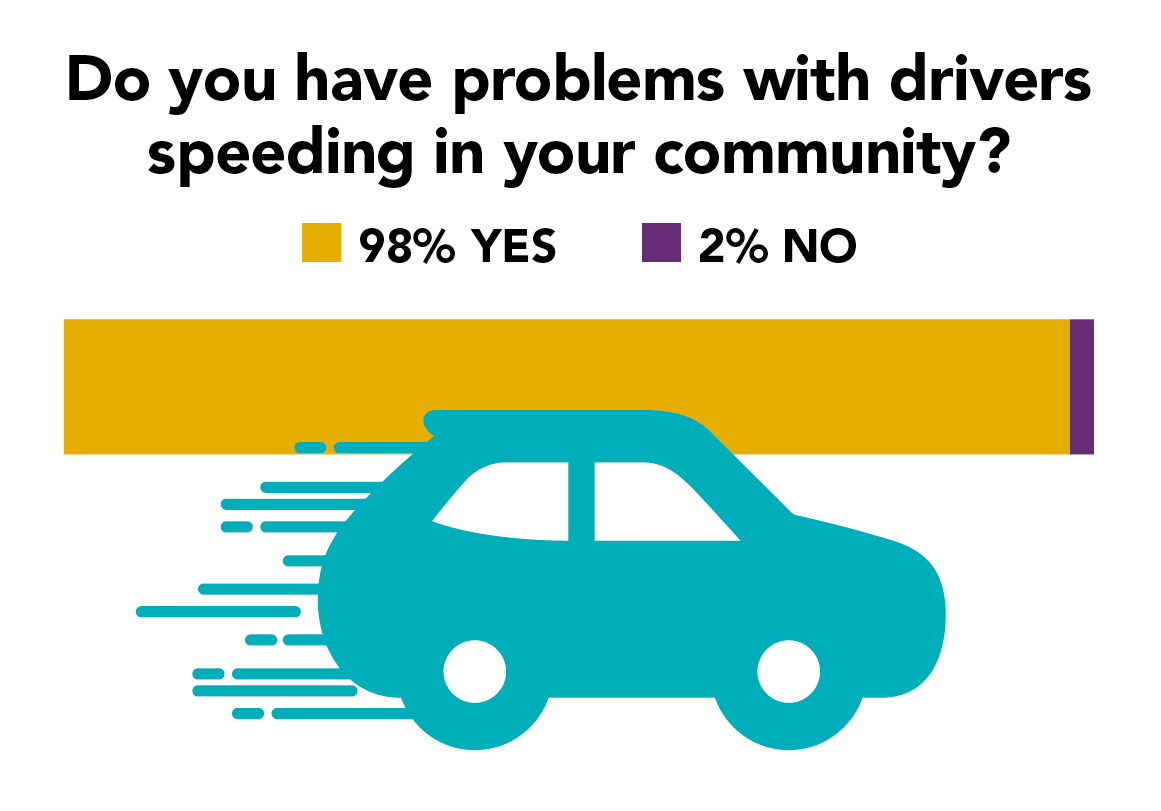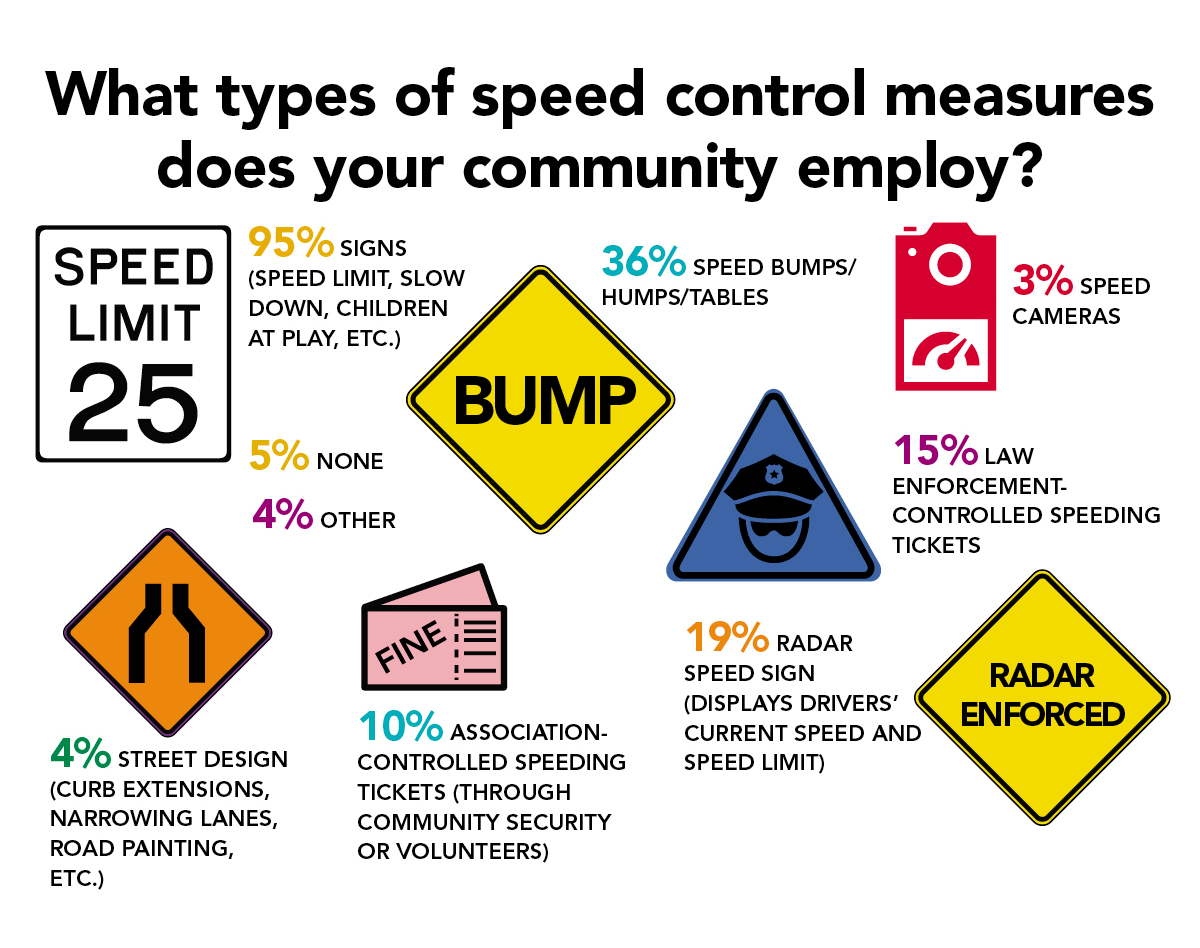When CAI’s Common Ground magazine asked readers whether they have problems with drivers speeding in their communities, a staggering 98% of respondents reported that they do, and nearly all (95%) use at least some form of speed control measures—from signs and speed humps to ticketing and cameras.
The most effective solution to slowing drivers is probably unique to each community.
Bent Tree Community Association, a self-contained, gated community of 1,200 homes about an hour north of Atlanta, regularly uses radar to monitor drivers’ speeds. The 20-mph speed limit on the community’s 55 miles of roads is part of the association’s bylaws, as is the fine for exceeding that speed, according to Tom Fowler, CMCA, AMS, Bent Tree’s general manager.
If a homeowner doesn’t pay a fine levied for speeding in the community within 30 days, the bar code on his or her entry decal will be deactivated. Without automatic operation of the community’s lift-gates, the driver must enter and exit the community through the guest gates, which are manned and operated by security guards.

Dunes West Property Owners Association in Mount Pleasant, S.C., started using radar about five years ago to gather information about residents’, visitors’, and contractors’ driving habits within the community, according to General Manager John Watkins, CMCA, AMS.
Just north of Charleston and bordered by U.S. Route 17 on the east and the Wando River to the west, Dunes West covers 3,000 acres and includes 33 miles of tree-lined roads and 100 named streets. The roads throughout the community are intentionally curved, which—like Bent Tree— challenges even the most capable drivers to slow down.
The association shares radar data with local law enforcement, so police know when and where drivers are most likely to speed. It also encourages local law enforcement to issue tickets on the community’s private roads.
Dunes West’s radar also has been effective in controlling contractors who drive within the community, Watkins says. Several homes are still under construction in Dunes West; builders can purchase coded decals that open Dunes West’s automatic liftgates so contractors’ vehicles can come and go efficiently from the community. If radar indicates contractors are habitually speeding, the codes can be revoked, which could be costly for a builder.

A pilot Pace Car program has been slowing speeders down in the Riverview Community Association in Cochrane, Alberta, since 2017.
The program, which has been used successfully in other Canadian communities for years, relies on individual volunteer residents to commit to driving the posted speed within the community, to stop for pedestrians crossing the road, and to be courteous to cyclists and vehicles other than cars. Drivers place a decal on the rear window of their cars that says, “Community Pace Car—I drive the limit,” and signs are posted at either entrance to the community alerting visitors that “We are a Pace Car community.”
“The idea is that any driver driving behind a Pace Car will notice the decal and … will drive the speed limit as well,” says Jennifer Foy, board president of the community of 400 single-family homes about 30 miles west of Calgary. She adds that to prevent road rage, Pace Car drivers are encouraged to pull over and let other drivers pass rather than confront them. “If (a Pace Car driver) gets someone on their bumper who’s honking or being aggressive, they just pull over and let them go around,” she says. “We’re not the police.”
No matter what solution your community develops, communication and transparency with residents are critical. Remind them about speed limits and the consequences of exceeding it frequently.



If your community is having speeding issues be proactive and not reactive. Traffic Logix is here to help with any speeding issue you might have. Give us a call or check out our website